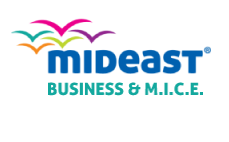The entry of Gen Z and Millennials into the professional world marks a fundamental shift in how corporate travel is perceived. Millennials, born between 1981 and 1996, and Gen Z, born after 1997, bring new values, expectations, and approaches to work that influence both the strategy and execution of business trips. In the Mideast, where the development of business hubs such as Dubai, Riyadh, Doha, and Abu Dhabi is progressing rapidly, these changes are particularly evident, creating new opportunities for companies aiming to remain competitive.
Next-Gen Corporate Travel Next-Gen Corporate Travel
New Generations and Evolving Travel Expectations
Young professionals no longer view corporate travel simply as a means to fulfill business obligations. For them, each trip represents an opportunity to combine productivity, personal growth, and experiences that enhance their professional profile. Their digital literacy allows them to leverage advanced travel management tools, from booking and expense-tracking apps to platforms that integrate wellbeing and personalization features. In the Mideast, demand for such services is increasing as business hubs seek ways to provide seamless experiences that meet the high expectations of younger travelers.
Research shows that 72% of Gen Z and 84% of Millennials prefer hybrid work arrangements, combining physical office presence with remote work. This trend directly affects destination choices and the planning of corporate travel, as young professionals demand flexible schedules that allow them to alternate between work and personal experiences.
Τεχνητή Νοημοσύνη στα Επαγγελματικά Ταξίδια
Hybrid Work and Flexibility in the Mideast
Modern business hubs have adopted infrastructures and services that support the demands of hybrid work. High-end hotels integrate coworking spaces, private meeting rooms, fast Wi-Fi, and quiet work zones, creating environments that enhance productivity without compromising comfort. The concept of bleisure, the combination of business and leisure, is gaining ground, as travelers can mix meetings with exploration activities, cultural experiences, or professional networking events. Companies increasingly recognize that flexibility in travel programs is a critical factor for attracting and retaining talent, especially among younger generations.
Companies invest in tools that allow flight adjustments, accommodation management, and the combination of business and personal activities to ensure employees experience seamless travel. In this context, the Mideast emerges as a region combining business dynamism, technological infrastructure, and lifestyle, creating ideal conditions for the new generations of travelers.

Well-being, Sustainability, and Personalization
Millennials and Gen Z place particular importance on wellbeing, environmental responsibility, and personalization. In the Mideast, hotels invest in wellness services, including gyms, spas, healthy dining options, and stress management programs, to support professionals’ wellbeing. At the same time, sustainability is a key selection criterion, with a focus on eco-friendly practices, energy efficiency, and recycling initiatives that reflect the values of the new generation. Service personalization provides tailored accommodation packages, activities, and meal options that cater to individual needs, creating experiences that combine professional productivity with personal satisfaction.
The demand for tailored services highlights the importance of a data-driven approach to travel management, as companies analyze preferences, habits, and travel history to deliver personalized experiences. In the Mideast, this trend has led to new hospitality models that integrate technology, comfort, and sustainability, attracting Millennials and Gen Z who seek more than mere transportation.
Changing Standards in Corporate Travel Design
The entry of Millennials and Gen Z is radically changing corporate travel standards in the Mideast. Travel is being redefined from a purely functional tool into an experience combining productivity, flexibility, and personal development. Technology enables travelers to plan, monitor, and manage their trips independently, while companies invest in services that reduce stress and enhance productivity. Sustainability and social responsibility are becoming central elements in partner and destination selection, resulting in younger generations preferring companies that implement green practices and offer environmentally friendly options.
The Mideast, with its ongoing investments in technology, hospitality, and infrastructure, is setting new corporate travel standards that link business efficiency, wellbeing, and sustainability. The younger generations are redefining what “corporate travel” means, emphasizing experience, flexibility, and personalization in every aspect of the journey.


Comment (0)